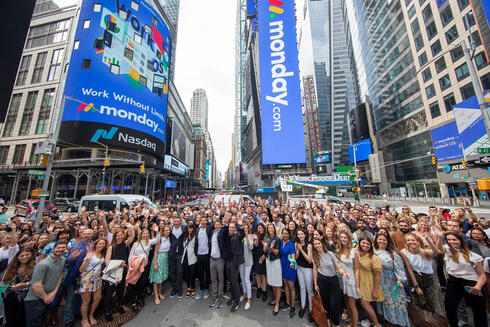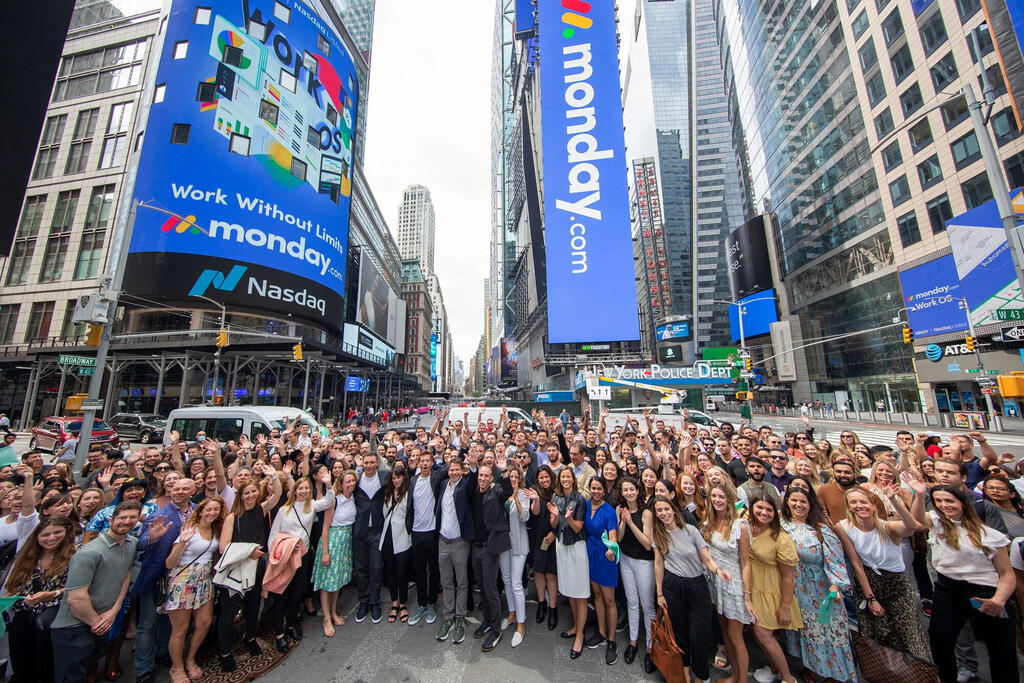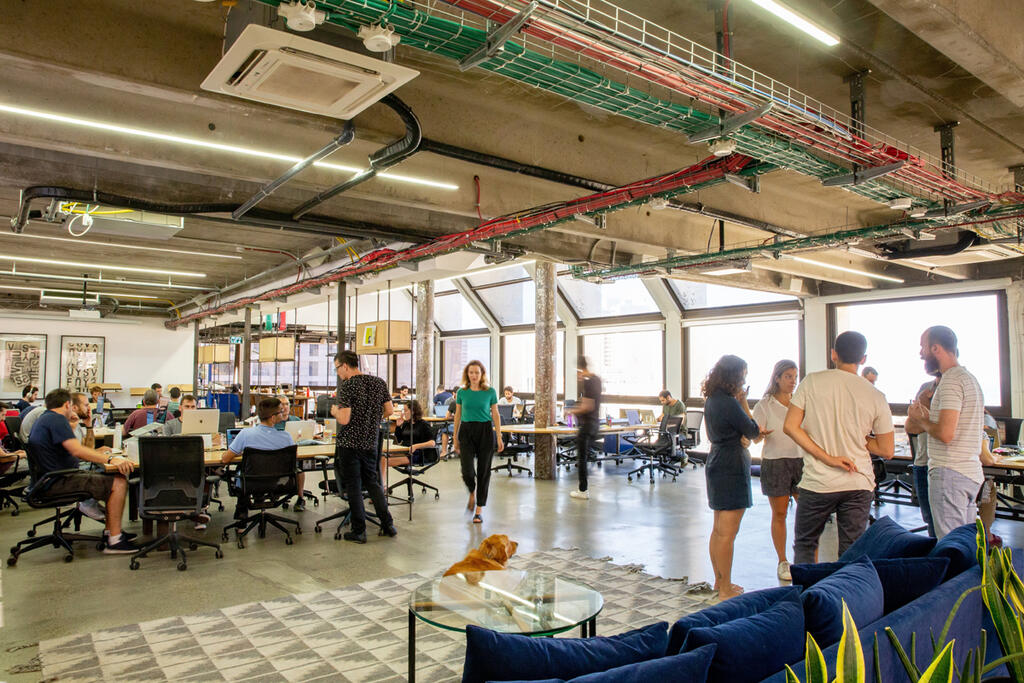
Analysis
After being bitten by Wall St. bears - what’s next for Israel’s Unicorns?
The unicorns that were born and bred in Israel and quickly found themselves on the U.S. stock exchanges are waking up to a harsh reality as the pandemic begins to wane. Investors, who are not content with anything less than phenomenal growth, have lost patience with the rise in expenses and the mounting losses
The season of financial reports has turned into a frontal clash between dream and reality. One by one, the newly issued Israeli companies become victims of their forecasts for 2022, which reveal that the waning of the Covid-19 pandemic requires an urgent update in the analysts' Excel files. There they find that every percent in future growth, on which all sides built on, costs the company several hundred million dollars in worth.
Along with the crashes comes the realization that at least some of the unicorns, those who were racing to Wall Street - probably too soon - would have been better off staying in the private sector. That’s where the money is still flowing, so the needs of the capital are met, but no one rocks the boat if after a few years of growth at a rate of 100% it drops to "only" 50%.
The situation in the stock market is completely different. Although there seems to be a huge number of unicorns and early-stage startups, in the end the number of those companies is much less than the number of public companies on the stock exchanges. A stock market investor has almost endless alternatives of a "growing software company" or a "software company growing at a reasonable rate and also profitable". The choice of these alternatives has been experienced in the last few weeks by several Israeli software companies - and now it's the turn of Kaltura, monday.com and Riskified to shed significant parts of their value.
In the case of monday, it was a loss of more than $2 billion of value, following a dive of more than 27% during Wednesday’s trading, and a first drop below the value in the IPO. Riskified dropped below a value of $1 billion after falling 10%, completing a fall of about 70% from its offering. Kaltura was almost completely wiped out with a 40% collapse during trading in New York, to a value of about $230 million. Despite the falls, these are still three companies with real activity, generating revenues of more than $100 million a year - a threshold that in the not too distant past many Israeli technology companies failed to cross. However they fail to do so and also make a profit. All three show heavy losses, and only monday manages to generate cash from operations.
And above all, the feeling of surprise hovers on both sides. Investors did not expect the software companies' optimistic statements about the need to dramatically increase investment - or as they like to say to double down - in order to take advantage of the "Covid pandemic momentum", to be felt over time in terms of spending rather than revenue. On the other hand, companies and their executives are surprised by the speed of change in the sentiment of investors, who are unwilling to stay to see if the massive investments in marketing, which in the meantime are reflected in heavy losses, will also translate into stable and sustained growth.
monday: "We will not take our foot off the gas"
"We had a phenomenal year, amazing growth and also a positive flow. Also in terms of forecast we are very much ahead of the numbers given around the IPO. We also said in advance that we would invest a lot in new products and expand the sales organization, because we want to change our position and become a really big company, and because of that there is no reason to take our foot off the gas," monday's CFO Eliran Glazer explained to Calcalist.
Investors thought a little differently and the stock collapsed following the company's forecast of 54% growth in revenues to about $475 million in 2022. On the surface, this is a fast growth rate, as monday ended 2021 with revenues of $308 million. However, it had previously registered a jump of 91% in growth from 2020 to 2021. Along with the slowdown in growth, losses are expected to remain high and reach 30% of revenues. monday also ended 2021 with a high operating loss of $126 million, though lower than the $150 million it lost in 2020. monday dramatically increased its spending in 2021 following a 51% increase in its workforce, with the company now employing 1,064 people. In its forecast for the first quarter, the company announced that it would record a one-time expense of $8 million on advertising costs for an ad broadcast in the last Super Bowl. On the positive side, monday was able to move for the first time to a positive cash flow from operations, which reached $16.4 million at the end of 2021, after showing a negative cash flow in previous years.
Riskified: Disappointing growth for 2022
Unlike monday, Riskified and Kaltura can not boast of future 50% growth nor of a positive cash flow from operations. Riskified, which was one of the most intriguing IPOs in 2021, provided a disappointing forecast for 2022 on Wednesday, predicting only 10% in revenue growth. The company, which has developed a system for detecting and preventing online commerce fraud, estimates that it will end the year with revenues of $254-257 million, compared to revenues of $229.1 million in 2021. The company's growth rate slowed in the second half of the year, and in the fourth quarter it increased its revenues by only 22%. The annual growth rate was 35%. "We hope to maintain positive momentum in 2022 as well, despite the short-term effects of the slowdown in online shopping and the continued effects of EU privacy regulation. We expect our growth rate to accelerate in the second half of the year," said Aglika Dotcheva, Riskified’s CFO. The new regulation, PSD2, focuses on improving online payer identification processes and involving third parties in these processes.
Riskified is also far from profitable and does not expect a significant improvement in this sector this year. It ended 2021 with an operating loss of $55.4 million, a rate similar to that of 2020. The bottom line is that it suffered a heavy loss of $179 million, resulting from a record loss of about $100 million for options revaluation. Riskified expects this year to post an adjusted EBITDA loss of $ 69-66 million, and if you compare this figure provided by the company to 2021, where it reached "only" $19 million, it shows a significant deepening of losses.
Kaltura: The market punishes through value
However, the most serious event occurred with Kaltura, which had difficulty going public even in a record year such as 2021. The company was forced to cut its IPO value, and now presents a growth-free forecast for 2022. Kaltura, which operates in the corporate video market, expects its revenues this year to total $173-178 million, compared to revenues of $165 million in 2021. This is a growth rate of less than 10%, which means that one can alternatively invest in shares of companies such as Check Point or Nice rather than Kaltura and also receive high profitability and positive cash flow. Last year, Kultura grew by 37%, but its operating loss quadrupled to $32 million. Cash flow from operations was negative, reaching $22 million.
Wall Street's way of "punishing" the new companies that did not maintain the growth rate they presented before the IPO is to push their share to an almost complete reset of value. Kaltura is the most prominent example with a value of less than $100 million at the moment, but Hippo and Talkspace are also in a similar situation. Of course stocks can always fall, but assuming companies meet forecasts for the first half of 2022, and accelerate their growth in the second half, as everyone expects, that makes them an attractive acquisition target. The companies offer interesting technological development, a customer base and a lucrative cash base, but they have only one problem - they are still inexperienced and unstable enough to be public. A bid from a competitor or investment funds, and deletion from trading, may be a winning solution for all parties.
















